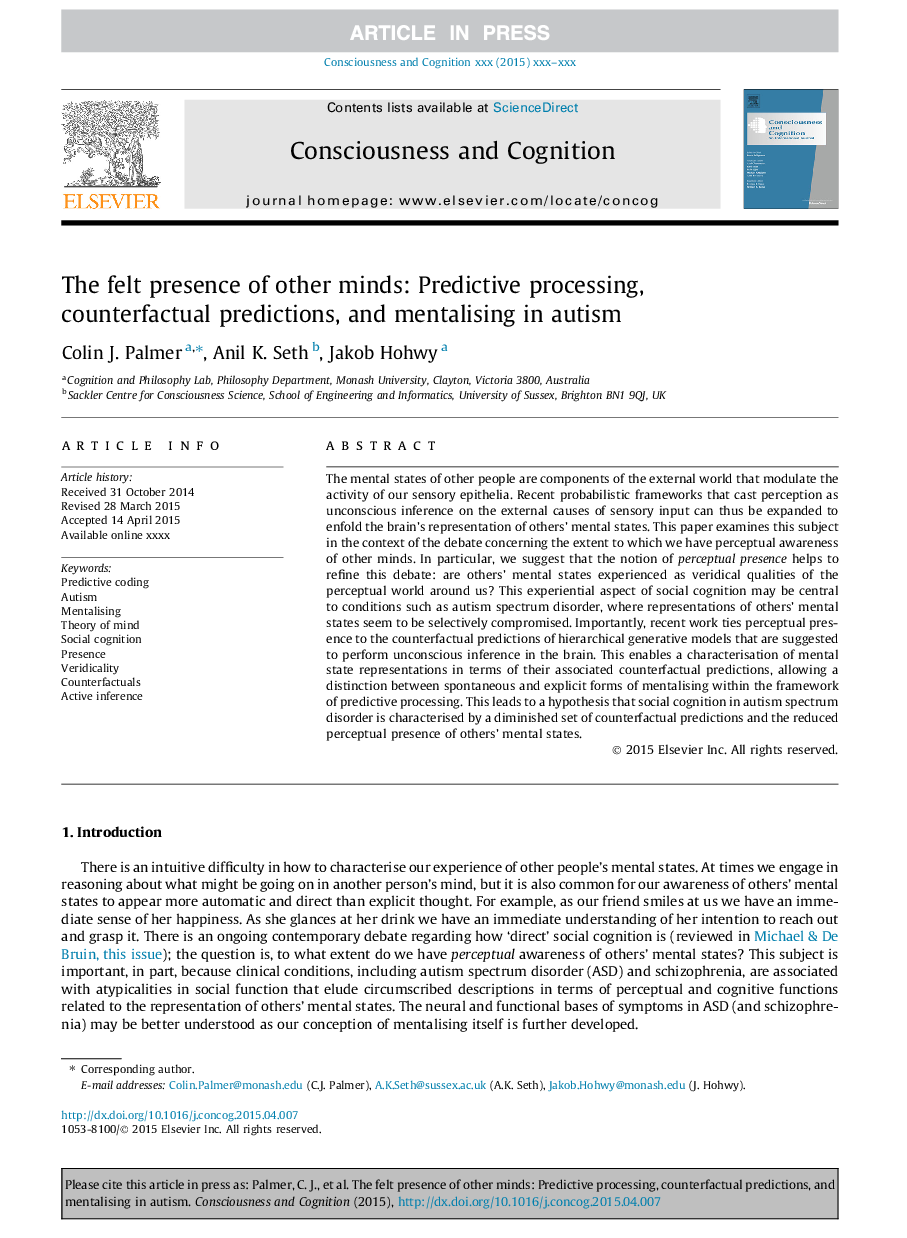| Article ID | Journal | Published Year | Pages | File Type |
|---|---|---|---|---|
| 7288910 | Consciousness and Cognition | 2015 | 14 Pages |
Abstract
The mental states of other people are components of the external world that modulate the activity of our sensory epithelia. Recent probabilistic frameworks that cast perception as unconscious inference on the external causes of sensory input can thus be expanded to enfold the brain's representation of others' mental states. This paper examines this subject in the context of the debate concerning the extent to which we have perceptual awareness of other minds. In particular, we suggest that the notion of perceptual presence helps to refine this debate: are others' mental states experienced as veridical qualities of the perceptual world around us? This experiential aspect of social cognition may be central to conditions such as autism spectrum disorder, where representations of others' mental states seem to be selectively compromised. Importantly, recent work ties perceptual presence to the counterfactual predictions of hierarchical generative models that are suggested to perform unconscious inference in the brain. This enables a characterisation of mental state representations in terms of their associated counterfactual predictions, allowing a distinction between spontaneous and explicit forms of mentalising within the framework of predictive processing. This leads to a hypothesis that social cognition in autism spectrum disorder is characterised by a diminished set of counterfactual predictions and the reduced perceptual presence of others' mental states.
Keywords
Related Topics
Life Sciences
Neuroscience
Cognitive Neuroscience
Authors
Colin J. Palmer, Anil K. Seth, Jakob Hohwy,
